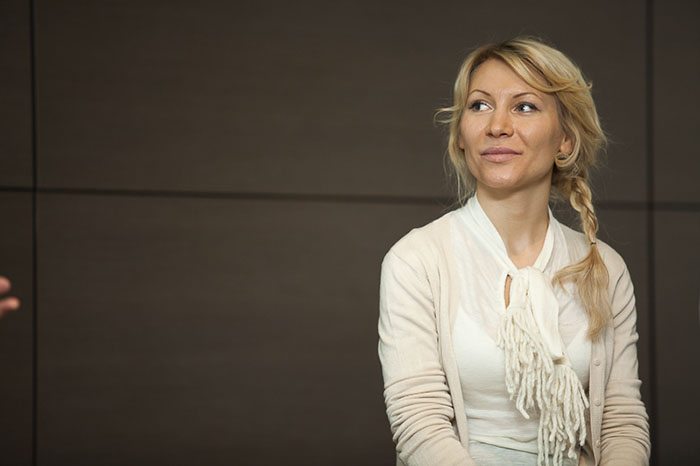In a country where one woman dies every 40 minutes from domestic abuse, Russian president Vladimir Putin has approved a controversial law that decriminalises family violence.
The amendment sailed through both houses of Russia’s parliament before Putin approved it, has drawn anger from critics who say it sends the wrong message.
Beatings of spouses or children that result in bruising or bleeding but not broken bones are punishable by 15 days in prison or a fine, if they do not happen more than once a year. Previously, they carried a maximum jail sentence of two years.
Alena Popova, who campaigned against the law, said it would be fine to pass the amendments if a draft law specifically aimed at tackling domestic violence was passed at the same time.
But that law, which provides for restraining orders and other safeguards in domestic abuse cases, is stalled in parliament and is not expected to pass.
“Passing these amendments and not passing the other law is another sign that our society refuses to take this problem seriously,” she said.
Defenders of the law say it closes a nonsensical loophole by which violent acts committed by family members are punished more harshly than those committed by strangers.
“The question is not whether it’s OK to hit or not. Of course it isn’t. The question is how to punish people and what you should punish them for,” said Olga Batalina, one of the MPs who drafted the law.
Others claim the law is about protecting Russian traditions under which the family is sacred.
Dmitry Smirnov, a priest who heads the Russian Orthodox Church’s commission on family matters, said on TV that the idea the state should be able to poke its nose into family affairs was a western imposition on Russia.
Some of the mainstream discussion around gender and domestic violence in Russia can be shocking.
An article in the popular tabloid Komsomolskaya Pravda told readers about an “advantage” of wife-beating.
“Recent scientific studies show the wives of angry men have a reason to be proud of their bruises. Biologists say that beaten-up women have a valuable advantage: they more often give birth to boys!”
Popova said during her one-woman protest outside parliament, various people had insulted her. Some claimed she was paid to protest by western governments; others told her some women simply deserved to be beaten, she said.
Discussion of the law in parliament coincided with women’s marches around the world after Donald Trump’s inauguration.
In Moscow, there was no official march organised, partly due to lack of interest and partly because of the difficulty in gaining permission to march from the authorities. A planned demonstration against the domestic violence amendments has been repeatedly stymied by authorities.
Margarita Grigoryan, a Moscow-born businesswoman who grew up in London but moved backed recently to open a business, organised a short walk around the Russian capital. About 15 people took part.
Political analyst Maria Lipman said the situation around gender roles in Russia was paradoxical. “The Soviet period saw gender equality from above, so some of the rights that women in the west fought for were granted or even imposed on Russian women,” said Lipman.
“This meant that the way gender relations developed was different, and Russian women never had to fight for their rights.
“Now on the one hand we have huge problems with unequal pay, with no women in politics, with domestic abuse, but on the other hand there are more top [female] editors of leading media outlets than in the United States, and there are many top women bankers, for example.”
Nearly 300,000 people signed Popova’s petition against the amendments, and an online campaign attempted to bring the domestic abuse problem into the open.
Using the hashtag #Iamnotscaredtospeak, thousands of Russian women shared their stories of sexual harassment, violence and rape on social media.
The tidal wave of stories shocked many, and prompted something of a discussion. But there is a major disparity between the attitudes of Russia’s urban middle class and the situation in the regions.
“There is a big constituency in Russia for whom interference in family affairs can be portrayed as another issue in which the west is trying to impose its views on Russia,” said Lipman.
Maria Alekhina, of the Pussy Riot protest group, said the legal amendments were a red herring. Russian society and attitudes needed to change to alleviate the domestic abuse situation.
Alekhina spent nearly two years in prison for a “punk prayer” in Moscow’s main cathedral in 2012.
She said between a quarter and a third of the women in jail were there for attacking abusive husbands.
“They were usually women who had been beaten up for years, and there was nowhere for them to go. We have no social help and no psychological help available. So one day they just pick up a knife and kill their husbands.”
- Are you, or someone you know, affected by family violence? In New Zealand see areyouok.org.nz; call info line 0800 456 450; in an emergency call 111. Australia has many state and regional services. See au.reachout.com; call info line 1800 RESPECT or 1800 737 732. If someone is in immediate danger call 000.







